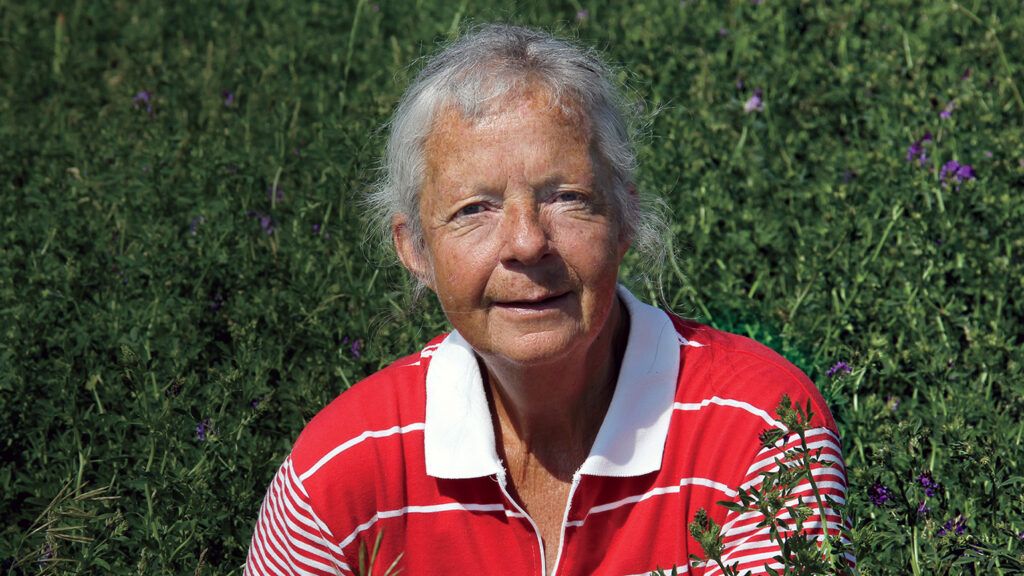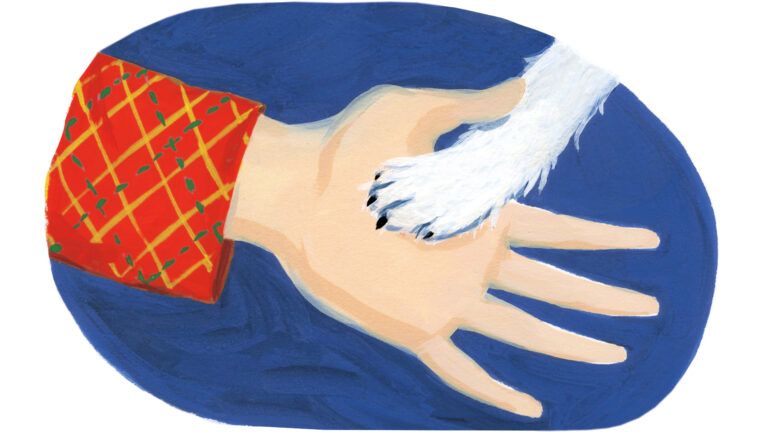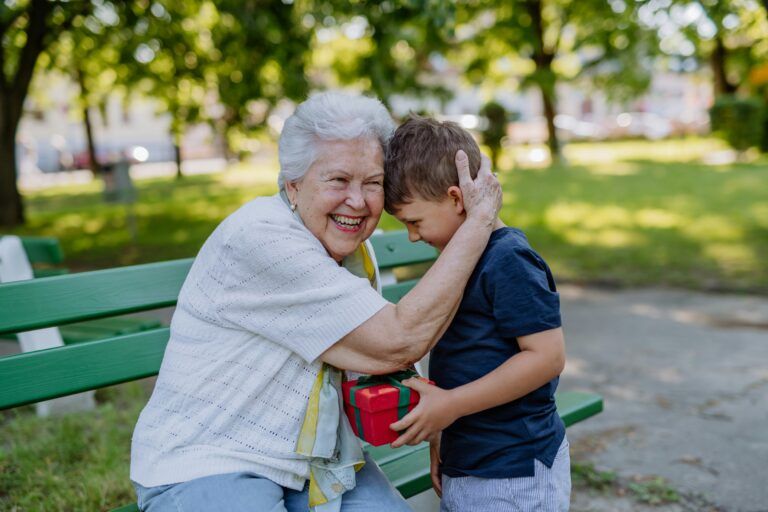Three weeks into this time of social distancing and my emotions were melting down.
Around the world, people were sheltering to prevent the spread of Covid-19. You’d think someone like me, a veteran at being alone, would have no problem with isolation. Since my husband John’s death from cancer seven years ago, I’ve managed our 468-acre farm and cattle operation on the North Dakota prairie by myself. I’ve learned to live with solitude, silence.
Yet this forced separation from my neighbors, my community and the cooperative farming arrangements that had taken me years to develop was stretching me to my limit. I was 67. Never had I felt so alone.
It was Maundy Thursday, four days before Easter. How I longed for John’s companionship, his hardy strength and clear-headed wisdom. “Lord, please let me hear his voice!” I said out loud during my morning prayer time.
It was an unusually bold prayer. Ordinarily I am content with God’s own ways of communicating. A sudden feeling of joy perhaps or a flash of insight amid silence. A memory of something John had said during the many long conversations we shared during our nearly 30-year marriage.
Was it presumptuous to ask for something more direct? It was Holy Week. If ever God might grant such a prayer, it was now.
My partnership with John had been close, and I had not expected to be alone at this stage of my life. We did not have children. The farm was our life’s work, and we worked in a prayerful rhythm, alternating solitude, togetherness, silence and conversation throughout each day.
John was a steady, thoughtful man. He made decisions carefully, writing out plans and goals. He had a way of considering ideas from all sides to arrive at a balanced view.
I needed that balance now. The news was full of conflicting opinions about the severity of the pandemic, the importance of quarantine, the right governmental response. I knew my age put me at risk. But I had a farm to run, and I couldn’t do it without help from my neighbors. John would have known how to sort through the confusion.
Since John’s death, I had built up a small community of people I worked with or just visited over coffee. I could endure isolation because there was always human contact to look forward to.
Nothing is as comforting as a hug once in a while, and my two young friends Julia and Mirek were certainly great huggers! They owned Farmtastic Heritage Foods Hub, a farm-to-table restaurant and catering business they had started in the nearby town of Anamoose. Julia and Mirek sold locally grown and prepared foods, including grass-fed beef from my farm.
I tried to visit them as often as I could to support their business, which had become an outlet for local growers. I loved Julia’s salads and desserts. And I loved even more the warm welcome I got and the sense of community in the restaurant, which occupied an old post office that had been vacant and marked for demolition before Julia and Mirek rescued it.
The restaurant was closed now. Would it survive? If it did, would I be able to hug my friends the next time I visited?
I wondered the same thing about other friends in the area. Here in North Dakota, dropping by for coffee is prime social time. When would I have that again?
I couldn’t visit my older sister, Karen. She was rightfully concerned about exposure to the virus, and she knew I had to be in contact with other people to keep the farm going. We mutually agreed not to meet for coffee.
And then there were Tony and Sam. They were my neighbors on either side of the farm, young men in their thirties, just starting their families. John had gotten to know Tony first, supporting his interest in horses. I had known Sam since he was a 17-year-old member of the church youth group John and I used to lead. Now he was married and establishing his own operation.
Life as an independent farmer is challenging in this era of agribusiness consolidation. I let Tony and Sam graze their cattle on 68 acres that John and I owned. John had grazed our cows on that piece of land, but I simply couldn’t manage it. It was too far away from the main farm.
Sam and Tony occasionally helped me on my farm. Some jobs required more raw strength than I had. I called Sam and Tony my “farm cooperators.” We worked shoulder to shoulder, treating a sick calf, pushing a stubborn cow into a trailer, hauling heavy loads. Then we had coffee back at the house or visited outside.
At least we used to. Sam and Tony still came over to help. But we did our best to keep our distance. How long would I have to give up that treasured time with my neighbors?
“John, where are you?” I demanded of his empty chair in the dining room. He had often sat there to do paperwork or just think or pray.
All that day, I listened for him. But all I heard was the wind.
Good Friday came, and my sense of loneliness deepened.
“Please forgive me for not letting you be enough,” I said to God that morning. I still had misgivings about my bold prayer the day before to hear John’s voice. I was in my prayer place by the dining room window. I reached for my Bible to read about Jesus’ death, but for some reason I picked up my journal instead.
I opened to the entry for May 1, 2013. I had been at the hospital that day while John underwent surgery. The hospital was run by a religious organization, and there was a crucifix on the waiting room wall. I remembered willing myself to envision that cross empty, Jesus already alive and appearing to his friends.
“I proclaim Jesus Christ, risen!” I had written in the journal while praying for a miracle for John. He died a few months later.
I closed my journal, put aside the memories and went outside to do the day’s chores. I pitched hay to the goats, watered the calves, checked cows and horses. Their company did nothing to ease my isolation.
Chores done, I went back to the house and climbed the stairs to my office, where I supplemented farm income by writing articles for agricultural publications. I passed the room where John had kept his own desk and saw that the two-foot rustic cross on his desk had somehow fallen facedown. I went in to set the cross back in place.
I noticed some papers on the floor, which was odd because I knew this room top to bottom and those papers hadn’t been there before. Maybe they slipped off when the cross fell. I picked them up and put them back on the desk. They were some of John’s old operating budgets for our cattle herd.
That’s when I spotted another stack of papers on top of a small box on the floor beside the desk. Recently I’d been cleaning out the closet in that room and set that box on the floor. But I didn’t remember putting any papers there. Six yellowed sheets were filled with John’s scrawl.
So many farm records in this house. Why did I save them all? But wait! These weren’t budgets. There were paragraphs here, John’s thoughts about something.
I rushed downstairs to the dining room to lay the pages on the table and decipher John’s writing, which was never easy to read.
It dawned on me what these papers were. Long ago, we had mused about John’s writing a weekly column for rural newspapers. He certainly had a lot to say about farming.
Apparently, he’d written a few sample columns but never shared them with me. I didn’t mind. He would have shared his writing only after he was satisfied he’d gotten it right.
I sat at the table with these tangible memories of my husband spread before me. John wrote in his customary self-deprecating manner, his oblique way of coming at an issue, sidestepping hard-and-fast judgments while pointing toward a hopeful outcome.
One of the columns mentioned walks we used to take around the farm. “We talk, we visit, we discuss,” he wrote. Music to my soul!
Another column spoke of “great and enduring adversities” testing character. Press on, Raylene, John seemed to be saying.
He signed each column, “The Red Leaf.” That must have been a nod to his Canadian heritage. He’d been born in Manitoba, and we had met when I was working at a Canadian ranch as a young woman.
The more I read, the more peaceful I felt. Here in these pages, discovered by accident on the darkest day of the Christian calendar, was the voice I had been longing to hear.
God had answered my prayer in his own time and way. And in that answer came all the other times God had been faithful through the never-ending challenges of farming and making a life in the demanding landscape of the northern prairie.
I was alone, yes, walking into an uncertain future.
And yet I was not alone. God was here. So were my years of experience as a farmer and the wisdom of my husband, which I still carried in my life and my work.
“There is hope for your future,” God promises in the book of Jeremiah, one of my favorite Bible verses. I believe it, even during this difficult time. A future of love and grace. Of renewed life. Of coffee with my sister and conversations with my neighbors. Hope that flows from a God for whom no prayer is too bold or too big.
For more inspiring stories, subscribe to Guideposts magazine.






